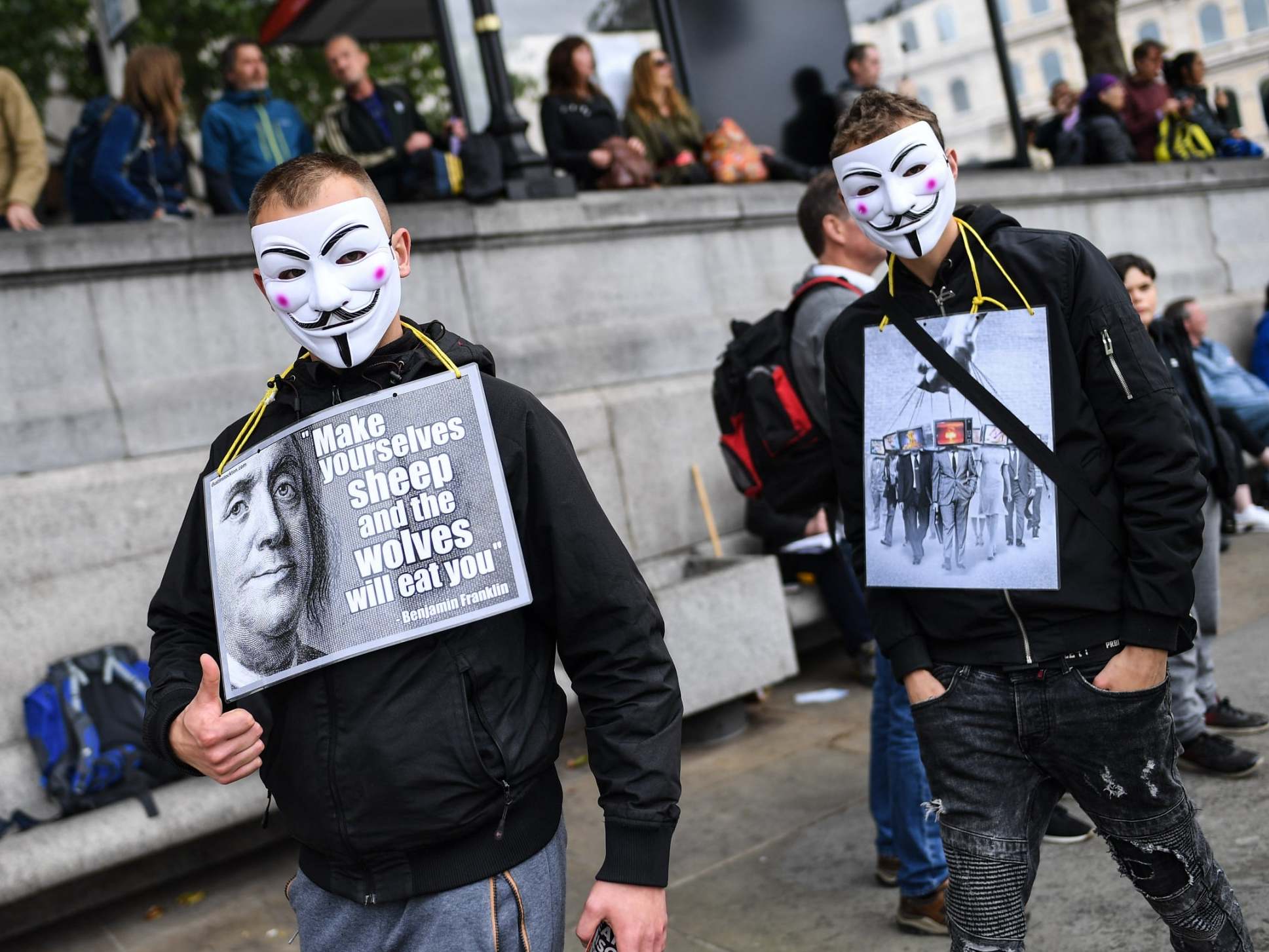New forms of terrorism inspired by conspiracy theories may emerge after pandemic, warns EU counter-terror chief
Gilles de Kerchove, the EU Counter-Terrorism Coordinator, says a ‘major change in society’ is underway

New forms of terrorism rooted in conspiracy theories could emerge after the coronavirus pandemic, the EU’s terror chief has warned.
Gilles de Kerchove, the EU counter-terrorism coordinator, said that while terrorists inspired by Isis and al-Qaeda remained the biggest security threat, a “major change in society” was underway.
In an interview published in the CTC Sentinel journal, he voiced concern about the “potential future rise of new forms of terrorism, rooted in conspiracy theories and technophobia”.
“We have already seen small-scale acts of violence caused by a belief in conspiracy theories – for example, against telecom masts – and given the amount of disinformation online, we could see more serious examples of this in the future,” he added, referring to vandalism by people believing 5G technology is harmful.
“I am also concerned about increasingly violent ecologist and animal rights groups.”
His comments were published on Tuesday, as a new wave of Extinction Rebellion protests started and after a weekend that saw large demonstrations by conspiracy theorists.
Thousands gathered in London’s Trafalgar Square on Saturday to protest against lockdown restrictions, vaccines, 5G and supposed establishment plots.
Speaking to Raffaello Pantucci, a senior associate fellow in international security studies at the Royal United Services Institute (Rusi), Mr De Kerchove said coronavirus had sparked a rise in “conspiracy theories that have no direct link to existing extremist ideologies”.
In June, the UK’s extremism chief told The Independent conspiracy theories must be tackled before they can be used to spark violence and terrorism.
Sara Khan, who leads the Commission for Countering Extremism, said the coronavirus pandemic was seeing “wacky” claims move into the mainstream and have real-world consequences.
“We’ve always treated conspiracy theories as being something harmless, wild and wacky but I think that’s been a mistake,” she added.
“We need to classify them based on harm and the types of behaviours they encourage. If they are inciting hatred, violence or justifying terrorism or inciting violence that’s not harmless.
“We need a better and more sophisticated policy response.”
Mr De Kerchove also raised concerns about growing far-right extremism and said left-wing extremism was also thought to be rising.
“Left-wing violent extremists are responsible for a large number of non-lethal attacks,” he added.
“Depending on how the economic crisis develops in the wake of the health crisis we are currently facing, inequality is going to be exacerbated, and this might inspire more violent left-wing extremism that could have the potential to become more lethal and more geographically dispersed than it currently is.”
The Belgian official stressed that it was “not at the same level of intensity as right-wing violent extremism”, warning that groups were strengthening international links and becoming unified around a theory that white people are being “replaced” in the west.
“Structured right-wing violent extremist groups often know exactly how far they can go in their statements and in their activities to remain just within the limits of what is legal,” Mr De Kerchove said.
“In the meantime, they leave it to ‘fanboys’ on the internet to take action by themselves, without any risk to the organisation.”
He said that coronavirus may have increased the potential for terrorists to stage mass-casualty attacks, because of a perception that police and security services are distracted and increased vulnerability to radicalisation during lockdown.
“We must prevent the current health and economic crisis from becoming a security crisis as well,” Mr De Kerchove said.
Coronavirus: London on lockdown
Show all 29“Given the increase in lone-actor attacks in the west, we should pay more attention to mental health issues in our policy response.”
He cited the upcoming release of hundreds of terror offenders from prisons in the UK and other countries and potential return of Isis members as other potential threats.
It came after Europol’s annual Terrorism Situation and Trend report said the UK had reported the highest number of far-right terror attacks and plots in Europe in 2019.
It said one attack – in Stanwell a day after the Christchurch shootings – was carried out and three were foiled in the year.
Britain also saw one Islamist attack – at Fishmongers’ Hall – and two others thwarted in 2019, as well as a separate “single-issue” plot.
No other EU country recorded more than two planned or attempted far-right terror attacks.
Islamist attacks remain the deadliest and most frequent, but last year the head of UK counter-terror police called far-right extremism the “fastest-growing” terror threat.
Of the 26 attack plots foiled in Britain since March 2017, 17 were classified as Islamist, eight far-right and one left, anarchist or single-issue terrorism.
Subscribe to Independent Premium to bookmark this article
Want to bookmark your favourite articles and stories to read or reference later? Start your Independent Premium subscription today.

Join our commenting forum
Join thought-provoking conversations, follow other Independent readers and see their replies